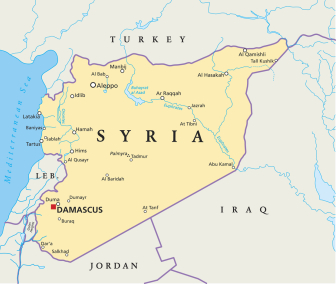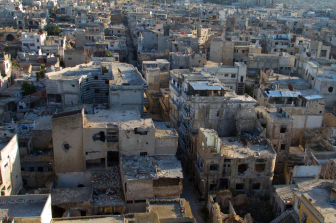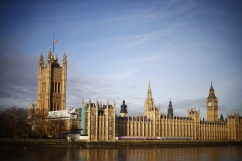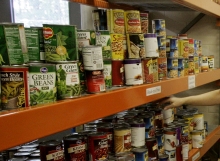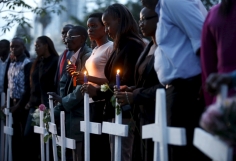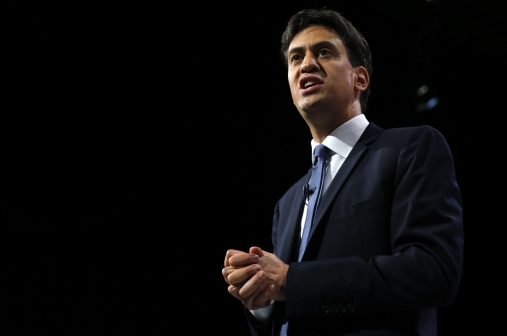
Labour leader Ed Miliband, who is an atheist, has explained how he will very much do God if he becomes prime minister.
Alastair Campbell famously said of the Labour government led by devout Christian Tony Blair: "We don't do God."
But Miliband believes that, even though he does not believe in God, he can make "common cause" with faith communities over issues of social justice, inequality and the environment.
And he confessed that there is another dream has which is yet to be realised: he hopes one day to meet the pope.
Miliband was speaking before addressing worshippers at Praise House, a thriving charismatic evangelical church in Croydon, south London.
He said he found "common cause" with faith communities over food banks, inequality, tax avoidance and how the financial system works. "I think we have lots and lots in common that we can work on."
He admitted: "The way I think about it is, I'm not somebody of religious faith. But what I recognise is that so many of objectives that I have for this country, how we get a country that's not just run for the rich and the most powerful, that's something that motivates lots of people of faith from all backgrounds and all walks of life.
"How people come to these issues is different but the view people take about these issues is actually very similar. So I think there's a really common agenda that I would have with people from the faith communities on these issues."
The question of food poverty, for example, is one where the churches and the Labour Party share a similar agenda.
Figures to be published next week are expected to reveal that the number of people who have used food banks over a 12-month period has topped a million for the first time.
Miliband said: "The first step to solving a problem is to recognise it. The trouble with the government is that they don't recognise it. David Cameron says the reason why people are going to food banks is they are better advertised. That's just a wilful answer."
He continued: "I think it's shocking, what's happening in terms of food banks in our country. I think it's shameful that we are one of the richest countries in the world and we have a million people using food banks."
He praised food bank volunteers as "great people" helping out friends, neighbours and the local community. He insisted government had a responsibility to help resolve the problems that led to the need for food banks in the first place.

"There are three things we've got to do. We've got to raise people's incomes because that's one of the things that's driving people to food banks." That included everything from a higher minimum wage to protecting tax credits to getting rid of the bedroom tax.
Second was the issue of personal debt, which he pledged to tackle by expanding credit unions, taxing payday lenders and supplying affordable credit through the credit unions. "Affordable credit is a crucial part of stopping the rise in people going to food banks," he said.
Third, the country needed a benefits system that worked, not one blighted by "months and months of delays in payments."
He said there were many in the Christian community who are deeply concerned about growing inequality in the UK, and the fact that there seems to be one rule for the rich and another for everyone else. "I share those concerns. Part of the mission of my government will be to say, we can't be a government that just has the rich and powerful doing well and pulling away from everybody else." This was about everything from a higher minimum wage, greater security at work, food banks, being willing to tax properties worth more than £2 million, helping the NHS and stamping down on tax avoidance.
"We are going to get rid of the so-called non-dom rule which has been in place for 200 years," he added. "I think there are lots of people who feel increasingly that we are a country where there is one rule for one set of people and another rule for another set of people and I don't think that's the way countries succeed. That leads to countries splitting apart and feeling dislocated and fragmented, not united, and I think that's what we've got to change."
On the day that a further 700 migrants were feared dead after their boat capsized in the Mediterranean, Miliband also spoke about the need for progress on bringing stability to Libya. He called for search and rescue to be recommenced. "We can't have a situation where people are being left to drown. It's just absolutely an appalling, appalling situation. And I think it will stir the conscience of people everywhere, that this is happening."
He pledged to stand up for Christians being persecuted worldwide. "We now know that 80 per cent of the people being persecuted because of their religion are Christians around the world."
A Labour government would have a global envoy for religious freedom reporting to the foreign secretary and a council in the foreign office investigating how to deal with these issues.
"It's really, really important that Britain takes a lead on these questions and we speak up about this, we speak up about the persecution of Christians around the world." He said he was "deeply troubled" about the persecution of Christians and other faiths. "The first thing we have got to do is speak up about the problem." Britain will be at the fore of working politically and diplomatically to stamp it out and get other countries to take it seriously, he said.
He promised to mobilise and work with the faith communities on environmental issues in the run-up to the United Nations climate change conference in Paris at the end of the year. He acknowledged the role played by faith communities at the 2009 Copenhagen summit. "We are going to have a job together to persuade world leaders, to push world leaders to do their bit. If I think about my kids and future generations, there's no more important issue than tackling climate change."
